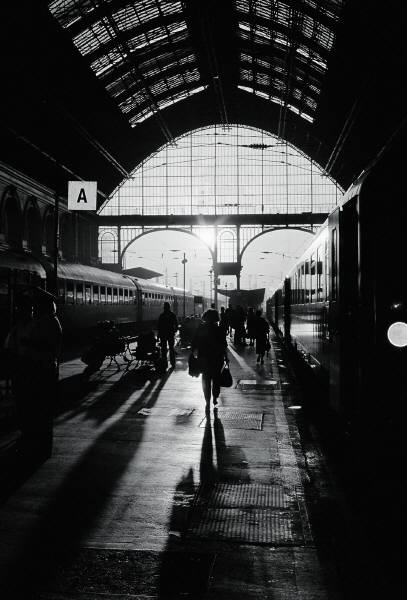Let’s revisit one of my favorite old posts, shall we? One that explores what is still my favorite analogy for Civility.
We’re All Traveling Together
I have a book called Civility: Manners, Morals, and the Etiquette of Democracy by Stephen L. Carter. It talks about the collapse of basic manners, how they have “become a casualty of our postmodern culture.” You already know that this is one of my favorite themes, and, in fact, I recommend this book quite a bit.
 He opens the book with an analogy which has become a favorite of mine. About how, in the 19th century, people travelled in groups because only the very rich could afford to travel alone. He says,
He opens the book with an analogy which has become a favorite of mine. About how, in the 19th century, people travelled in groups because only the very rich could afford to travel alone. He says,
“Well, of course: to travel so far together, packed shoulder to shoulder like chess pieces in their little box, everybody had to behave or the ride would become intolerable. Everyone followed the rules for the sake of their fellow passengers, and they did so, as one historian has noted, out of a spirit of self-denial and the self-sacrifice of one’s own comfort for another’s.”
There was, you understand, a sense of “we’re all in this together.” Everybody was crowded, everybody had to endure the same discomforts of travel, but everybody collectively gritted their teeth because that was the only way it was bearable, by working together to keep it as civilized as possible. He goes on to say,
“But nowadays we have automobiles, and we travel both long and short distances surrounded by metal and glass and the illusion that we are travelling alone. The illusion has seeped into every crevice of our public and private lives, persuading us that sacrifices are no longer necessary. If railroad passengers a century ago knew the journey would be impossible unless they considered the comfort of others more important than their own, our spreading illusion has taken us in the other direction. We care less and less about our fellow citizens, because we no longer see them as our fellow passengers. We see them as obstacles or competitors, or we may not see them at all.”
This is such a brilliant observation, don’t you think? How often have you walked down the street and seen other people listening to iPods, talking on cellphones, completely caught up in their own, private worlds? I often count myself lucky if they’re paying enough attention not to walk into me as they wander along. People go shopping in their pajamas; they think nothing of cutting in line. They meander across parking lots, never glancing over their shoulders to see if there’s a car coming. Because, of course, the world revolves around them. Not only are they not travelling with the rest of us, they’re riding a float in their own little parade, condescendingly waving to the crowd.
Not everyone does this, naturally. (I’m sure you don’t.) Most of the people I know have, at some time or another, shaken their heads when witnessing behaviors such as these, just because they’re not normal behaviors. In fact, many people do check for cars before stepping into a roadway, or thoughtfully hold doors for other people. It’s just the fact that these annoying, selfish behaviors seem to become more common all the time that’s so worrying.
Because, really, we ARE all travelling through this life together. Don’t we owe it to our fellow passengers to make the ride as easy as possible? ride as easy as possible?
